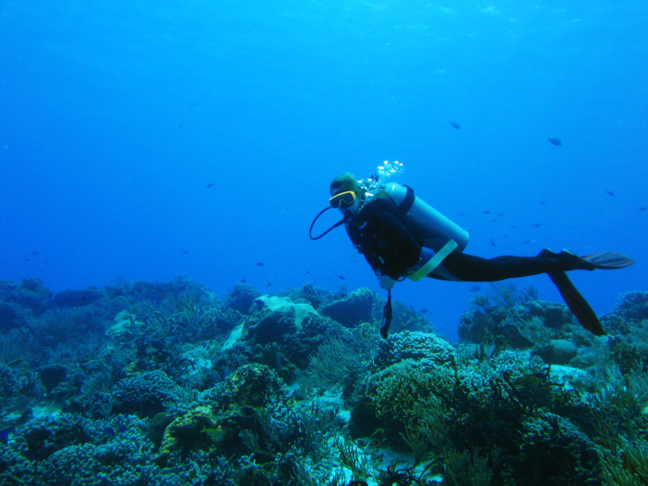Scuba Diving Safety: The Do's and Don'ts of Exploring Underwater
Posted by Alan on 9th Jun 2014
Shop Prescription Scuba Diving Masks

Scuba diving offers the ultimate freedom to explore ocean ecosystems without having to stay near the surface for air. With an oxygen tank and respirator attached to your wetsuit, you'll have a more authentic underwater experience, allowing you to experience this thriving new world up close and personal.
But there are inherit risks associated with all outdoor sports and activities and scuba diving is no exception. Failure to follow proper protocol when you're 50 meters or more below the surface could place you at risk for serious injury or even death.
Shop the best scuba diving safety products under $25
Do: Stay In Open Areas
The allure of exploring an underwater cave or century-old shipwreck may sound enticing but scuba diving into these 'covered' environments adds an entirely new the level of risk to the activity. You can easily get turned around or even stuck in environments such as this, increasing the likelihood of injury. Until you are properly trained for covered environments, stay in open, well-lit areas where you have a full 360-degree view of your surroundings.
Do: Buddy Up
Always bring at least one other person on your scuba diving adventures. Not only will this reduce your risk of injury but let's face it, diving is more enjoyable when you have someone else to share it with.
Do: Keep a Dive Journal
What's the purpose of a dive journal? Among other things, it allows you to keep track of everything you've seen and done while scuba diving. You can list any animals you encountered on a dive, shipwrecks, the current, what equipment you used, how long you were submerged, etc. Using this information, you can make smarter and more efficient dives in the future.
Don't Ascend Fast
The golden rule of scuba diving is to ascend slowly. The body's natural instinct is to dart up to the surface where there's fresh oxygen. However, ascending too fast may cause dangerous build-up of nitrogen in your bloodstream and tissue.
Take your time and enjoy the beautiful marine life surrounding you. When you begin to ascend, go slow and continue breathing to expunge the carbon dioxide from your lungs. This will reduce the risk of nitrogen narcosis and the bends (Decompression Sickness).
Don't Touch The Marine Life
No matter how seemingly harmless it looks, you should never touch any of the marine life when scuba diving. Most aquatic animal attacks on divers are the direct result of being touched or otherwise provoked. Something as simple as stretching your hand out to touch a passing manatee could trigger an aggressive response so please keep your hands to yourself.
amzn_assoc_placement = "adunit0"; amzn_assoc_tracking_id = "gogglesnmore-20"; amzn_assoc_ad_mode = "search"; amzn_assoc_ad_type = "smart"; amzn_assoc_marketplace = "amazon"; amzn_assoc_region = "US"; amzn_assoc_default_search_phrase = "marine life identification book"; amzn_assoc_default_category = "All"; amzn_assoc_linkid = "7be68bbf4e16f2766c0780131311902e"; amzn_assoc_search_bar = "false"; amzn_assoc_search_bar_position = "top"; amzn_assoc_title = "Shop Skydiving Products";




